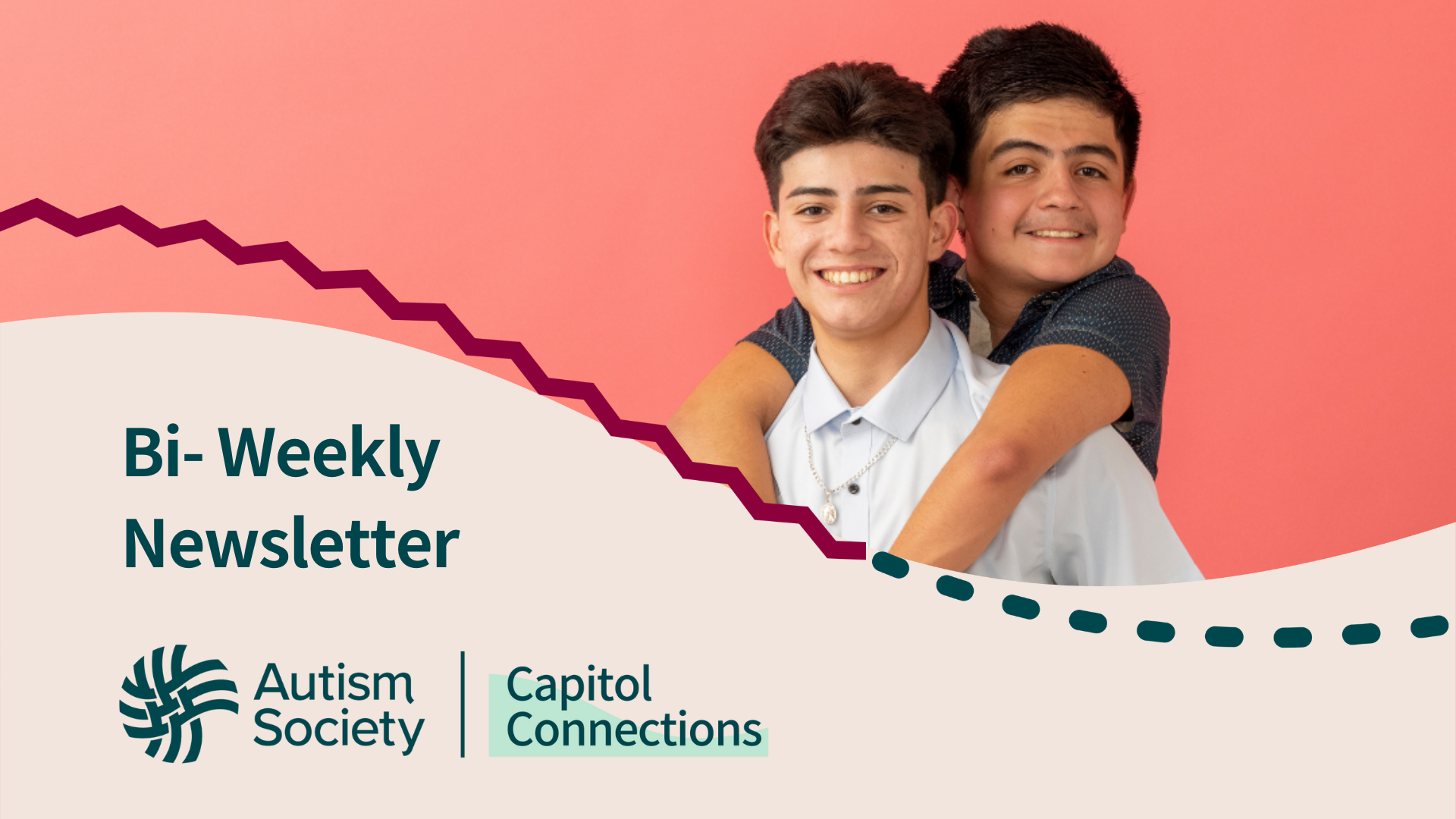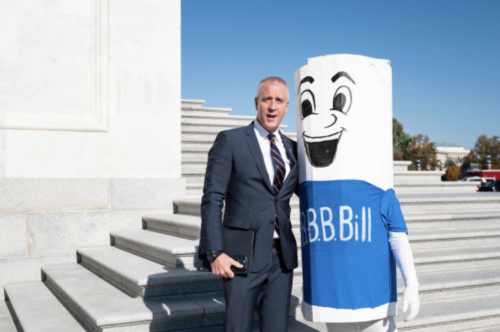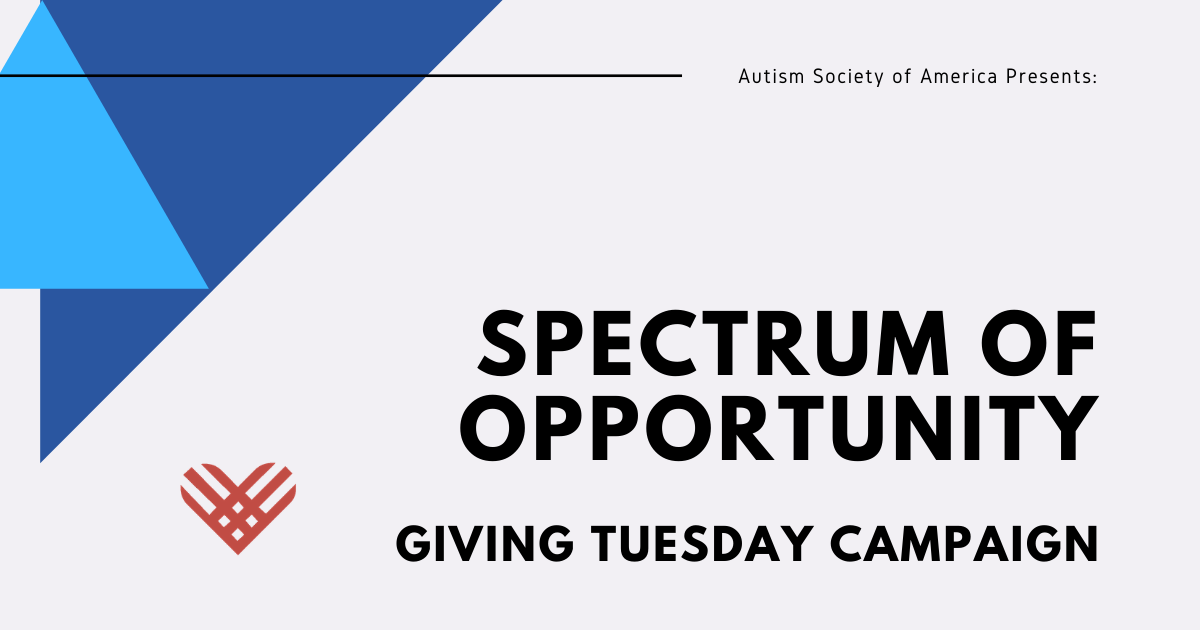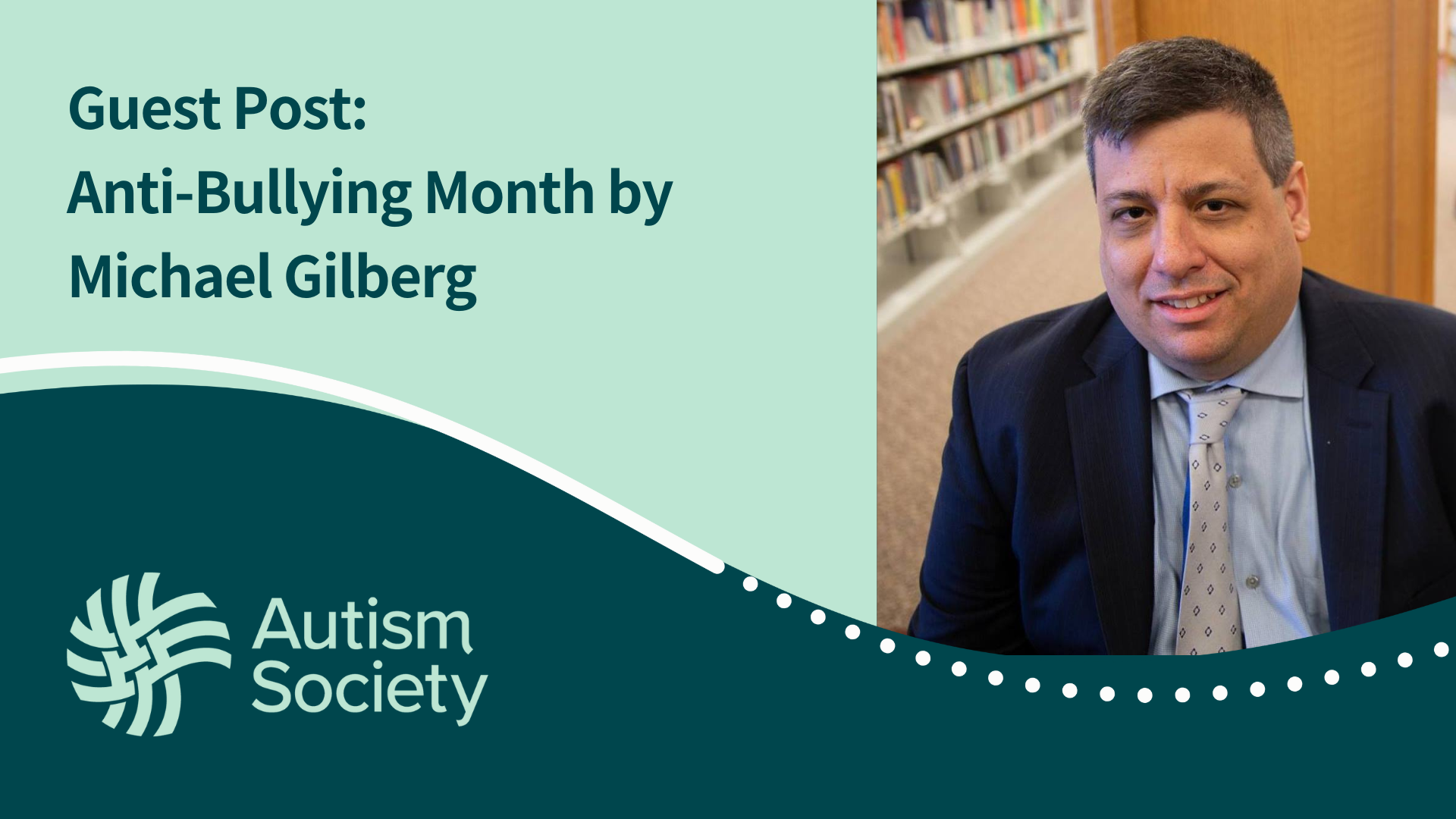
In this issue of Capitol Connection, the Autism Society’s Policy Newsletter, details of the House-passed Build Back Better Act are provided, updates on legislation related to employment, school safety, funding for special education, and an opportunity to comment on civil rights data collection are also included. The Autism Society’s Action Center provides easy steps for advocates to educate Congress about these and other issues impacting the Autism community.
Build Back Better Act
The policy team continued to advocate for the Build Back Better Act which includes historic investments in programs that will positively impact people with autism and their families. On November 19, the House of Representatives passed its version of the bill. The House contains the following provisions supported by the Autism Society of America, among others:
Home and Community-Based Services
- $150 billion over 10 years for home and community-based services (HCBS) to eliminate waiting lists for services and bolster pay for direct care workers
- Making the Money Follows the Person program which infuses funding into the home and community infrastructure permanent
Education and Child Care
- $390 billion investment in universal, accessible, preschool for all 3- and 4-year-olds
- $160 million investment in IDEA Part D to help develop personnel working with students with disabilities
- $25 million investment for behavioral health needs for people with intellectual and developmental disabilities
- Families earning up to 250% of the state median income will not have to pay more than 7% of their income on childcare
- See recent CCD letter urging Congress to include education provisions in the BBB
Housing
- $150 billion investment in affordable housing supports, including funding for vouchers, rental assistance, and other public housing improvements
- The proposed funding for new vouchers is estimated to help 138,000 people with disabilities receive affordable, accessible housing
- The proposal also includes a $100 million investment in Section 811 and 202 programs for people with disabilities to provide rental assistance and to create more supportive housing
Paid Leave and Child Tax Credit
- 4 weeks of guaranteed paid and medical leave for all workers, which will help people with disabilities take time off for medical reasons and will help family members to provide care for a loved one without the risk of losing their job
- Extending the Child Tax Credit (CTC), which provides more than 35 million households up to $3,600 per year in tax cuts per child; the proposed legislation will extend this program for the year of 2022, providing payments to nearly 90% of American children
Health Care
- Closes the Medicaid coverage gap for 4 million uninsured people by extending affordable Marketplace coverage to low-income people in non-expansion states
- Expanding hearing benefits to the traditional Medicaid program
- Permanently reauthorizes the Children’s Health Insurance Program (CHIP)
- Extends continuous 12-month eligibility in Medicaid for children and adolescents
- Extends COVID-related premiums supports and cost-sharing reductions in ACA Marketplace coverage through 2025 — meaning more people can afford the premiums to buy coverage and have low enough cost-sharing to use it
Employment
- Disability employment supports, including funding for pre-apprenticeship programs and funding to businesses and organizations that are working to phase out programs that pay people with disabilities subminimum wages
The next step is for the Senate to take up the bill. Autism Society staff met with numerous targeted members of Congress to educate them about the needs of people with autism, especially urging the highest possible funding for the Medicaid home and community-based services provision (see Disability Scoop article for more).
We hope the bill passes before the Christmas holiday break. Please continue educating your Members of Congress about the need for this critical funding by using our action alert.

Senator Patrick Maloney (D-NY) with the Build Back Better bill seen roaming Capitol Hill last week
Transformation to Competitive Integrated Employment Act
The Transformation to Competitive Integrated Employment Act (TCIEA) was reintroduced in the Senate. In this Congress, Senator Steve Daines (R-MT) joins lead author, Senator Bob Casey (D-PA) in reintroducing the bill. The bipartisan bill was reintroduced on the House side by Reps Scott (D-VA) and McMorris Rogers (R-WA) earlier this year. The Autism Society is pleased to see bipartisan support for this bill in both the House and Senate. Please use our action alert to educate Members of Congress about the need for this legislation.
Restraints and Seclusion
The Autism Society continues to advocate for passage of the Keeping All Students Safe Act (HR 3474), authored by Rep. Don Beyer (D-VA). The bill now has 96 co-sponsors. The Senate bill, sponsored by Chris Murphy (D-CT) now has 15 co-sponsors. Unfortunately, there are no Republican co-sponsors. On November 18, the Alliance to Prevent Restraints, Aversive Interventions and Seclusion (APRAIS), of which the Autism Society is a member, conducted a briefing on the need to pass KASSA. The briefing featured compelling first-person stories of individuals subjected to R/S in schools. Senators Patty Murray (D-WA) and Murphy also spoke. The Autism Society also joined APRAIS on Hill visits to garner additional co-sponsors. See more in the Action Center.
IDEA Full Funding Act
Senator Chris Van Hollen (D-MD) and Representative Jared Huffman (D-CA) reintroduced the IDEA Full Funding Act last week. This bill intends to put funding for IDEA on a “glide path” to full funding to help states with their obligation to provide a free and appropriate public education. IDEA authorizes the federal government to pay 40 percent of the per-pupil expenditure; it currently only pays about 14 percent. The American Rescue Plan temporarily increased funding up to 18 percent in FY 2021. The Autism Society participated in a briefing on the bill, along with Senator Van Hollen (D-MD) sponsored by a coalition dedicated to fulfilling the promise of IDEA. The Autism Society, as chair of the CCD Education Task Force, sent a letter in support of this bill.
Civil Rights Data Collection/Education
The U.S. Department of Education’s Office for Civil Rights (OCR) today announced a proposed Civil Rights Data Collection (CRDC) Information Collection Request package for the 2021–22 school year. The notice describes key civil rights data OCR intends to collect from the nation’s public schools and districts. OCR plans to introduce new data categories, such as those relating to students’ educational experiences during the COVID-19 pandemic, and restore key data categories from previous collections. These include:
- The addition of COVID-19 data elements to learn the extent to which schools are offering remote and/or in-person instruction to students during the school year.
- Revisions to the restraint and seclusion definitions (in line with KASSA).
- The restoration and expansion of data about preschool students and teachers, including data elements regarding preschool students with disabilities who receive special education and; the extent to which schools have teachers with one or two years of experience; and teacher certification status.
OCR also announced the administration of a 2021-22 CRDC, marking the first time that OCR has conducted a civil rights data collection two years in a row. The additional collection will allow the Department to identify and address inequities in educational opportunities as the country continues to grapple with the COVID-19 pandemic and its effects on students’ academic, social, and emotional development. The CRDC is a valuable resource for all those who use data to better inform policy decisions (see Frequently Asked Questions).
Members of the public may review the proposed 2021-22 CRDC data elements here. An official copy will be posted in the Federal Register at https://www.federalregister.gov by Nov. 19, 2021. The Autism Society intends to submit comments. If you have comments that you would like to be added to ASA’s submission, please email them to kmusheno@autism-society.org.
COVID Resource
On October 29, the National Council on Disability (NCD) released 2021 Progress Report: The Impact of COVID-19 on People with Disabilities. This report examines COVID-19’s disproportionate negative impact on people with disabilities in (1) accessing healthcare; (2) accessing direct care support; (3) congregate care settings and transition; (4) education; (5) employment; (6) effective communication; and (7) mental health and suicide prevention services. It summarizes the federal and state response to these impacts and makes recommendations for improving those responses.
State Advocacy
Restraints and Seclusion
A lawsuit was settled in Fairfax County VA related to the use of restraints and seclusion of students with disabilities in schools. The agreement prohibits seclusion of any children, prohibits restraint or seclusion to be included in Individualized Education Plans (IEP), and requires all teachers to be trained. This includes private schools accepting students with disabilities paid by the district. See more in the Washington Post.
Share:




